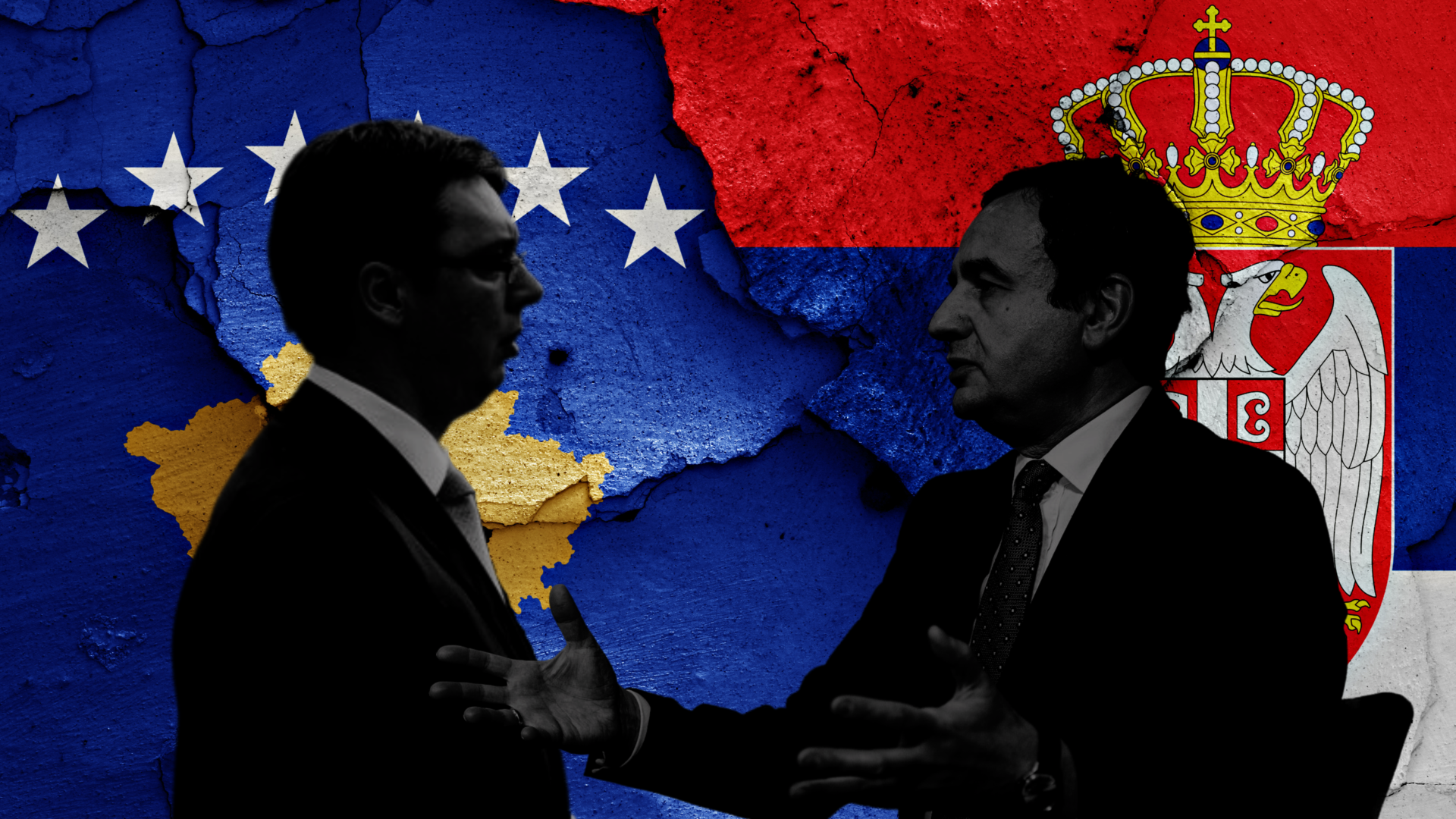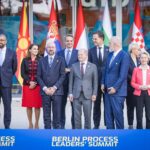Kosovo Prime Minister Albin Kurti said the Community of Serb Municipalities (CSM) would deal a deadly blow at Kosovo’s Constitution. He insists that he disagrees with the decision. “It is no coincidence that our Constitutional Court acknowledged that 23 articles of the proposed CSM Statute are contrary to our Constitution,” Kurti continued.
Albin Kurti accused the Aleksandar Vycic government of pursuing an administrative ethnic cleansing of municipalities with the Albanian majority in Serbia, deleting the addresses of local Albanians from municipal registers. He added that Vucic also wants to establish an ethnocratic legal and political formation in Kosovo to render the whole state dysfunctional. After all, he does not believe in the idea of a liberal-democratic society, so this is the reason why Vucuc wants to establish and control such a structure as the CSM in Kosovo. This is not the first time Kurti speaks up against the CSM idea, expressing fears that the structure will be similar to Republika Srpska in Bosnia and Herzegovina and will jeopardize the territorial integrity of Kosovo.
It should be recalled that the CSM should become partial autonomy of Serb communities in Kosovo, which was agreed by the Governments of Serbia and Kosovo within the framework of the Brussels Agreement. It was expected that the CSM would be created in 2015, but the parties are yet to come to a joint vision of the range of its powers. The course toward assigning certain self-government functions to the Serb communities was approved in the framework of the Orchid Agreement, adopted by Kosovo and Serbia leaders in March 2023. Under the deal, the Republic of Kosovo was to immediately launch a dialogue with the European Union to ensure a “proper level of self-government” for the ethnic Serb community.
French President Emmanuel Macron warned the authorities in Pristina during the Berlin Process Summit he could suspend the visa liberalization for Kosovo unless it followed up on its promises. The key conditions include organizing new elections in the north of Kosovo, ensuring participation of Serbs and their engagement in Pristina government bodies. In addition, Kosovo authorities shall recognize the Community of Serb Municipalities. Macron emphasized that he expects from Belgrade and Pristina commitment to reach the agreement, as this is important for their European aspirations. The French leader called on Belgrade and Pristina to take responsibility for easing tensions.
After the Berlin Process Summit, Kosovo Prime Minister Albin Kurti urgently met with Macron’s adviser. The fact that neither in Kosovo nor the French side have published a single statement about that meeting proves that some serious conversation took place.
Meanwhile, the French Embassy in Kosovo explained Macron’s statement on visa liberalization for Kosovo, noting that the president never required that visas be introduced for Kosovo citizens. The Embassy of France stressed that Macron made the emphasis on demanding the responsibility from President Serbia Alexandar Vucic for the Sep 24 attack in Banjska. Macron said France demanded a thorough investigation into these events and prosecution of perpetrators. According to the Embassy of France, Macron asked Kosovo to organize the election in its northern municipalities and suggested that both parties fulfill the obligation to ensure participation of local Serbs and their return to Kosovo government agencies. Macron called for the “spirit of responsibility” on the part of the president Serbia, as well as the president and prime minister Kosovo. It was in this context that the French president mentioned the issue of visa liberalization, which was a gesture of goodwill from the European Union that was never reciprocated. Therefore, Paris expects that the Kosovo authorities, as well as those in Serbia, will keep their word and confirm their commitment to move forward in the coming weeks, the embassy said.
We must recall that the decision to liberalize the visa regime for Kosovo should come into force on January 1, 2024.
Thus, after the French Embassy denied that President Macron demanded the rollback of visa waiver for Kosovo citizens, Albin Kurti continued to defend his thoughts on how harmful the establishment of the CSM would be, which goes completely out of France, EU, and the US line.
So now France and the EU will have to issue appropriate statements on the unacceptability of such a position. European leaders may break patience on Kurti’s rogue behavior. EU Special Representative for Western Balkan Miroslav Lajcak and US Special Representative Gabriel Escobar are set to travel to Belgrade and Pristina as soon as possible to hold negotiations on the situation in the north of Kosovo. Then it will be clear whether Pristina and Belgrade are ready for compromise.
In the meantime, the Kosovo prime minister met with KFOR Mission Commander General Ozkan Ulutas (Turkey) and asked KFOR to focus on the border with Serbia after the armed attack on Kosovo police in Banjska. During the meeting, the parties discussed the security situation in the area where a Kosovo police and four Serbian attackers were killed. Kurti said Kosovo was interested in closer cooperation with KFOR, and praised the strengthening of the mission’s presence. He urged that this presence o should be focused on monitoring the border between Kosovo and Serbia, where weapons from Serbia came from and from where Kosovo believes a threat may come. Border protection also means the closing of illegal cross-border routes, and therefore a more extensive cooperation with the Kosovo police is required. It is worth noting that since the armed clash in Banjska, the Kosovo police have blocked more than 20 unofficial routes leading from Serbia to Kosovo, fearing another escalation.
On the same day, Prime Minister Kurti spoke at the Kosovo Academy of Public Security in Vucitrn, stressing that Serbia was constantly threatening Kosovo in military terms as it has deployed artillery close to the Kosovo border. Also, along the 381km-long border, Serbia set up 48 advanced offensive bases, 28 military and 20 gendarmerie departments.
Kurti’s statement look rather uncompromising. However, if Kosovo fails to be constructive in its dialogue with Serbia or follow the road map proposed by the EU, this can lead to a reduction in political support from its Western allies. We are soon to see the reaction from Brussels and Washington.



